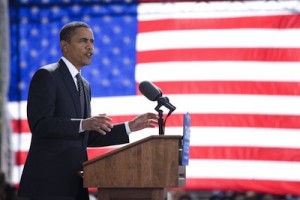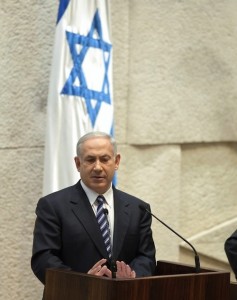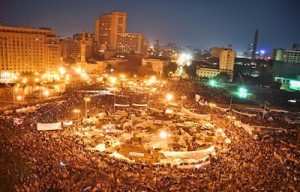Obama’s inauguration, unrest in the Maghreb, and Europe’s future all on the agenda in another busy week
Monday 21 January

Barack Obama delivers his second inaugural address on Monday, the climax of a day of festivities in the US capital following his re-election in November. The need for further action to stem gun violence is all but certain to feature, as well as the ongoing economic challenges facing the United States.
In Brussels, meanwhile, eurozone finance ministers are scheduled to meet, with current president of the grouping Jean Claude-Juncker expected to pass leadership to the Dutch Finance Minister, Jeroen Dijsselbloem.
Finally, India’s Supreme Court is expected to issue its ruling in the controversial Niyamgiri bauxite mine case. The bauxite extracted would be used in an aluminium refinery run by mining conglomerate Vedanta Resources but critics say it will cause untold damage to the Niyamgiri Hills, which are in Orissa state.
Tuesday 22 January

Israeli’s go to the polls in parliamentary elections in which Prime Minister Binyamin ‘Bibi’ Netanyahu and his Likud party is all but certain to secure enough seats in the Knesset to retain power. The campaign has been notable for the rise of Naftali Bennett and his hard-right Jewish Home party.
Meanwhile, Germany’s Angela Merkel and France’s François Hollande will lead celebrations of the 50th Anniversary of the Elysée Treaty. A joint cabinet meeting of the two countries will be held, as well as a joint session of France’s National Assembly and the Bundestag. Expect much focus on the future of the European project.
Japan’s Central Bank, which is under pressure from Shinzo Abe’s government, concludes a two-day monetary policy meeting on Tuesday. Observers anticipate an easing of policy and possibly a doubling of the inflation target to 2%.
Finally, Tuesday marks the 40th anniversary of one of the US Supreme Court’s most well-known, and controversial, decisions: Roe v Wade.
Wednesday 23 January
Some of the world’s most influential business figures will gather in Davos from Wednesday at the World Economic Forum. While health is formally the major theme of this year’s gathering, the US economic outlook and the future of the euro will no doubt be major topics of conversation among the attendees.
In Moscow, Russian Foreign Minister Sergey Lavrov is due to address domestic and foreign journalists. Again, although ostensibly a reflection on Russian diplomacy in 2012, questions are more likely to focus on future affairs, especially in as regards the Syria conflict.
In the United States, outgoing Secretary of State Hillary Clinton is scheduled to address the House Foreign Affairs and Senate Foreign Relations Committees on the September attack on the US consulate in Benghazi in Libya, delayed from December. This will almost certainly be her final testimony before she leaves the post (her nominated successor, Senator John Kerry, is due to have his confirmation hearing on Thursday).

Lastly, Jordan holds elections which the country’s Muslim Brotherhood has vowed to boycott.
Thursday 24 January

As mentioned above, Senator John Kerry will appear before the Senate Foreign Relations Committee on his nomination to be US Secretary of State. He will be questioned on the full gambit of US foreign policy priorities, particularly Israel, Iran and Syria. North Africa also expected to be a significant area of questioning.
Also in US affairs, Senator Dianne Feinstein, author of a ban on assault weapons that expired in 2004, will introduce legislation to once more ban the sale of assault weapons and high-capacity magazines.
In Addis Ababa, African Union Foreign Ministers are due to begin a two-day meeting, with the current conflict in Mali likely to be a key point of discussion, in addition to events in the DR Congo, relations between Sudan and South Sudan (a special meeting on this is scheduled for Friday), as well as unrest in the Central African Republic.
Finally, in Strasbourg, the European Court of Human Rights holds its annual briefing for the media.
Friday 25 January
The Czech Republic holds a run-off in its presidential election, with Foreign Minister Karel Schwarzenberg squaring up against former Prime Minister Milos Zeman.

Egypt, meanwhile, marks two years since the protests began that ultimately led to the downfall of Hosni Mubarak.
Also, US Treasury Secretary Tim Geithner is scheduled to step down. His designated successor, Jacob Lew, has yet to be confirmed. Lew’s unusual signature has attracted much attention.
Saturday 26 January
The top US diplomat on North Korea, Glyn Davies, arrives in Tokyo for talks with counterparts. This is the final destination on a trip that also sees him travel to Seoul and Beijing to discuss the secretive communist state. His visit comes amid reports the DPRK is planning to test another nuclear device.

Saturday is also Australia Day and Republic Day in India.
Sunday 27 January
Leaders from the African Union begin their two-day summit. Again, Mali, the Sudans, DR Congo, Somalia and Algeria all likely to be discussed.
Finally, Bulgarians are due to take part in the country’s first referendum since 1989. The issue at stake: whether to approve the construction of a new nuclear power plant.
Images courtesy of
Theodore Littleton / Shutterstock.com
